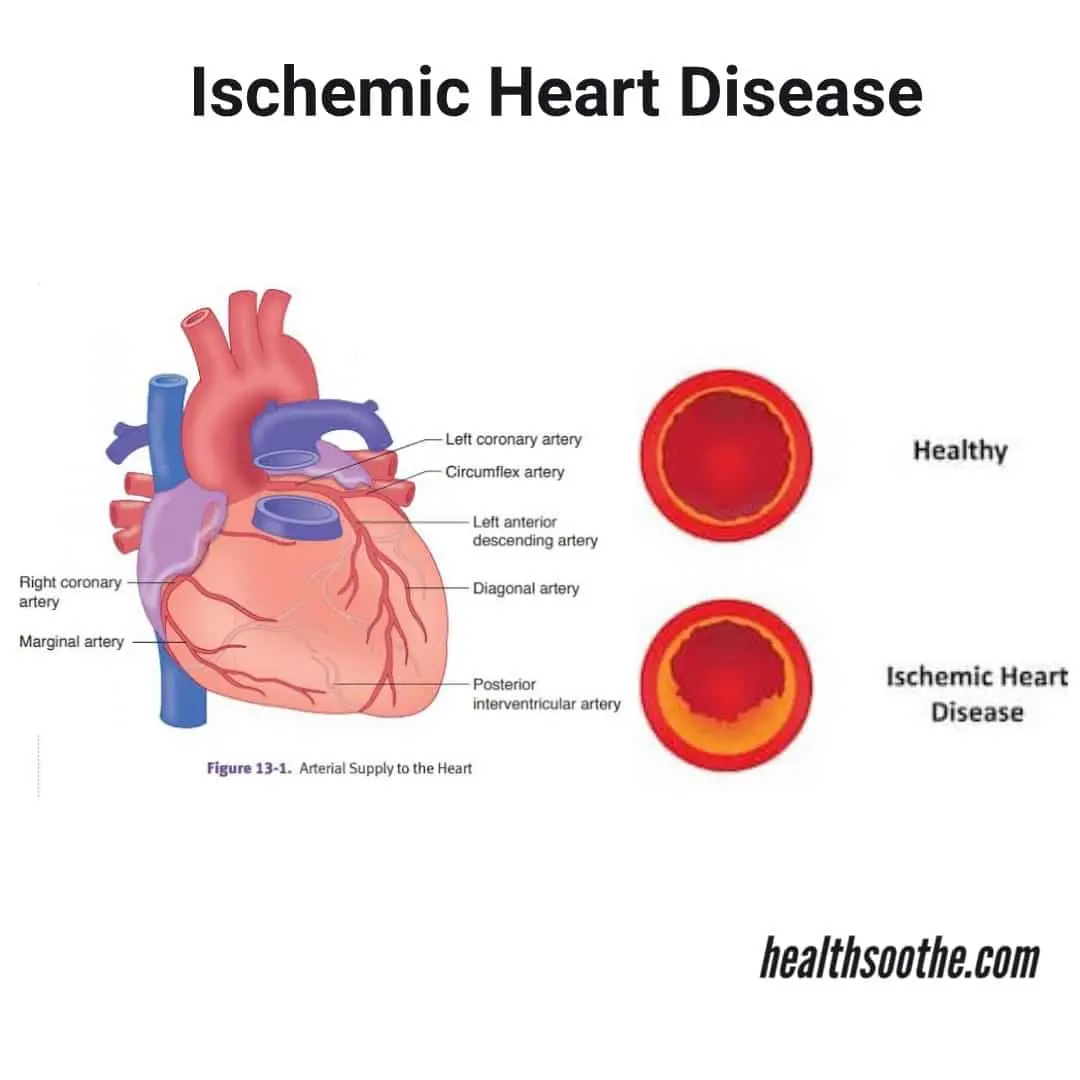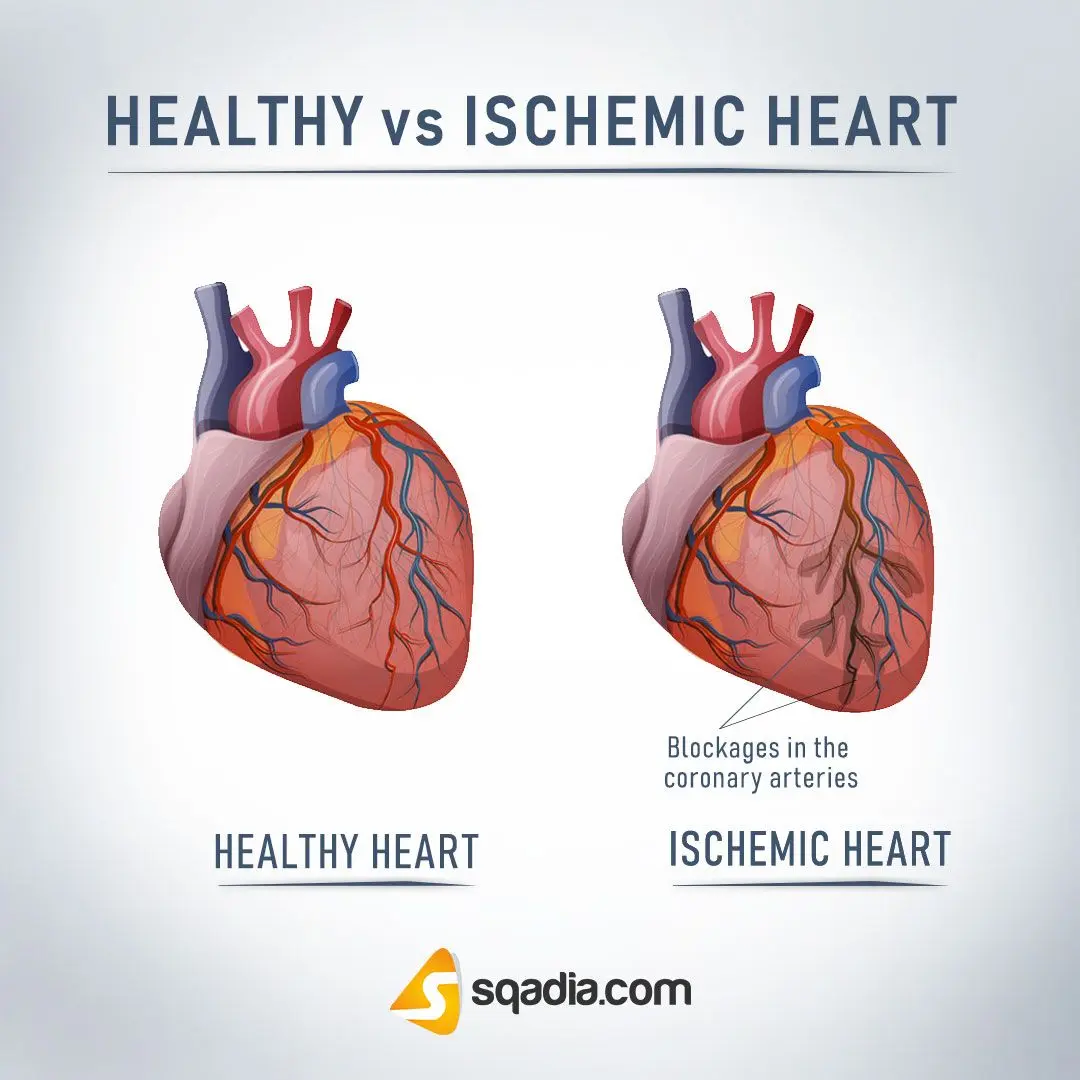Can Ischemic Heart Disease be Cured?
Sometimes
Management focuses on controlling symptoms, preventing complications, and improving heart health; outcomes depend on the extent of coronary artery disease and the success of interventions

What is Ischemic Heart Disease?
Ischemic Heart Disease, or coronary artery disease, occurs when the blood flow to the heart muscle is reduced. It can lead to chest pain (angina) or heart attacks. Management includes lifestyle changes, medications, and sometimes interventions like angioplasty or coronary artery bypass surgery.

Clinical Aspects

Characteristics
Condition where the blood supply to the heart muscle is reduced or blocked, typically due to coronary artery disease

Symptoms
Chest pain (angina), shortness of breath, fatigue

Diagnosis
Electrocardiogram (ECG), imaging studies

Prognosis
Variable, depends on the extent of damage and interventions

Complications
Heart attack, complications affecting cardiac function
Etiology and Treatment

Causes
Atherosclerosis (plaque buildup in the coronary arteries), blood clots, coronary artery spasm

Treatments
Lifestyle changes (diet, exercise), medications (aspirin, statins, beta-blockers), angioplasty, bypass surgery

Prevention
Lifestyle changes (diet, exercise), medications (aspirin, statins, beta-blockers), angioplasty, bypass surgery
Public Health and Patient Perspectives

Epidemiology
Reduced blood flow to the heart muscle due to coronary artery disease

Patient Perspectives
Medications, lifestyle modifications, sometimes procedures
This information aims to provide a general understanding of the subject matter, but individual circumstances can vary significantly. Please remember to consult with healthcare professionals for personalized advice and guidance.
Share: